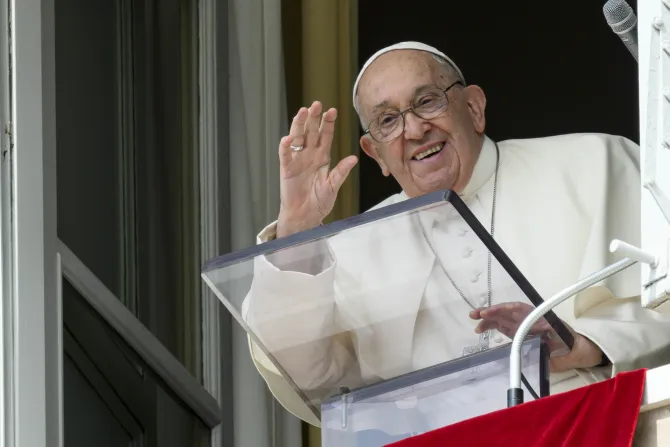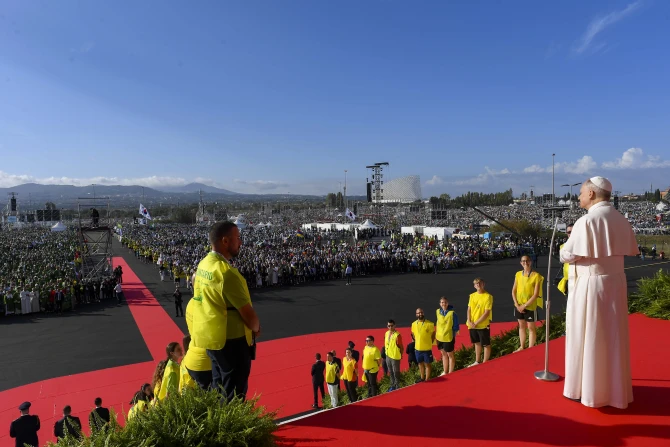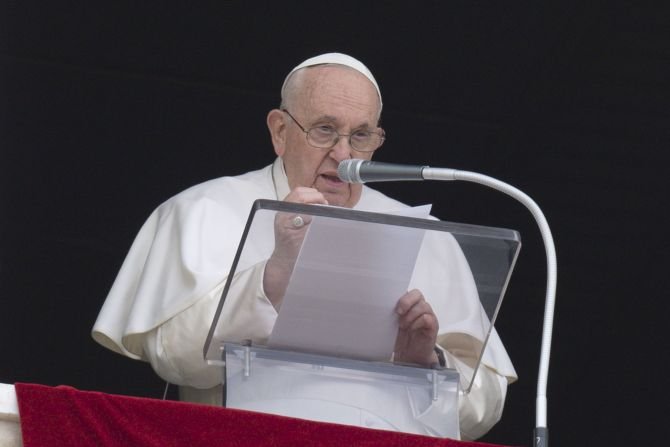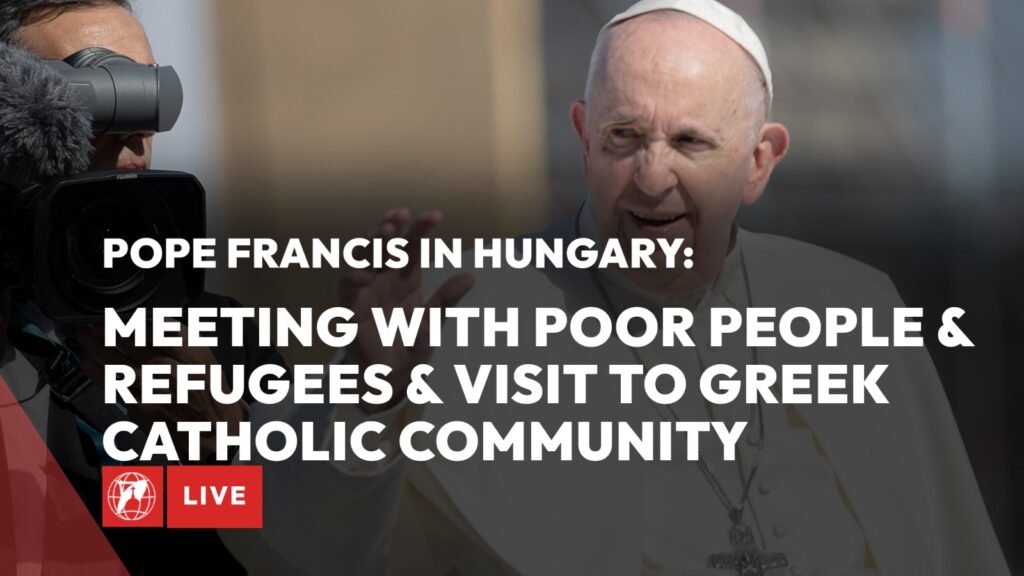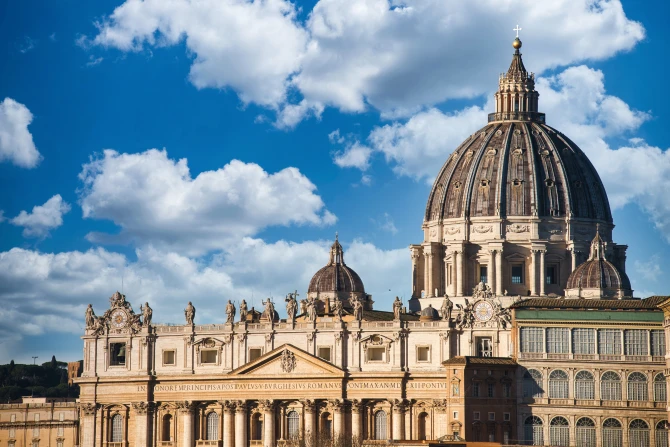On Sunday, Pope Francis recalled Jesus’ teaching that true power is found by taking care of others, not by exploiting them or using them.
“With a word as simple as it is decisive, Jesus renews our way of living. He teaches us that true power does not lie in the dominion of the strongest but in care for the weakest,” the pope said in his weekly Angelus address Sept. 22.
“True power,” Francis emphasized, “is taking care of the weakest; that makes you great.”
The pontiff delivered his brief reflection on the day’s Gospel from a window of the Apostolic Palace, which overlooks St. Peter’s Square, where thousands had gathered to see the pope and to pray with him.
After leading the Angelus prayer in Latin, Pope Francis remembered a Catholic man who dedicated his life to serving the weak: Juan Antonio López, a Catholic environmental activist who was killed after leaving his church in Tocoa in northeastern Honduras on Sept. 14.
In addition to his work in defense of the environment, López was a delegate of the Word of God in the Diocese of Trujillo, where, with the permission of the local bishop, he would lead celebrations of the Word of God, which include the proclamation of the Gospel and the distribution of Eucharistic hosts previously consecrated by priests. Delegates of the Word of God serve in places where priests visit infrequently.
López was also his diocese’s social justice coordinator, a founding member of the integral ecology council, and a member of the Municipal Committee for the Defense of Common and Public Goods of Tocoa. The Catholic husband and father was known for his defense of creation and the rights of the poor and Indigenous in the face of environmental exploitation in Honduras.
“I join in the mourning of the Church and the condemnation of all forms of violence,” the pontiff said. “I am close to those who see their elementary rights trampled upon and those who work for the common good in response to the cry of the poor and the earth.”

“How many people, how many, suffer and die because of power struggles,” Pope Francis said in his reflection before the Angelus. “Theirs are lives that the world rejects, as it rejected Jesus… When [Jesus] was delivered into the hands of men, he found not an embrace but a cross. Nevertheless, the Gospel remains a living and hopeful word: He who was rejected is risen; he is Lord!”
In his message, Pope Francis described the scene in the day’s Gospel passage: “Today the Gospel of the liturgy (Mark 9:30-37) tells us about Jesus who announces what will happen at the culmination of his life: ‘The Son of man will be delivered into the hands of men, and they will kill him; and when he is killed, after three days he will rise.’”
“The disciples, however, while they are following the Master, have other things in their mind and on their lips,” the pope pointed out. “When Jesus asks them what they were talking about, they do not answer.”
This silence, Francis noted, is telling. “The disciples are silent because they were discussing who was the greatest. What a contrast with the words of the Lord! While Jesus confided in them the meaning of his very life, they were talking about power.”
The pope noted the words of Jesus to his disciples: “If anyone wishes to be first, he shall be the last of all and the servant of all.”
Then Jesus, Pope Francis explained, illustrated his point by embracing a child, telling his disciples: “Whoever receives one such child in my name receives me.”
“The child has no power; he has needs,” he said. “We, all of us, are alive because we have been welcomed, but power makes us forget this truth. Then we become people who dominate, not servants, and the first to suffer as a result are the last: the little ones, the weak, the poor.”
This article was originally published on Catholic News Agency.

